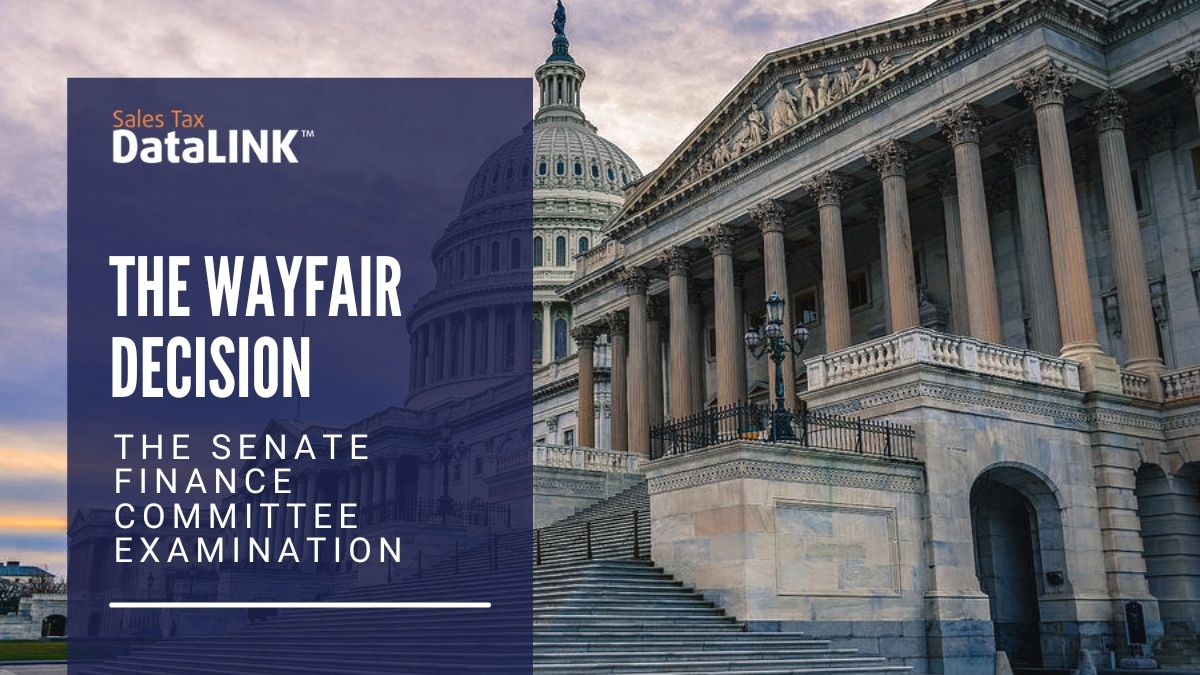The Wayfair Decision
Four years ago, the Supreme Court’s decision in South Dakota vs. Wayfair changed everything about sales tax compliance for businesses with revenue from multiple states.
Instead of being responsible only for transactions in states where you have a store, your company must now collect and remit sales tax for all your transactions as soon as you reach a sales threshold in each state. Since it’s hard to predict when that will happen, it makes sense for most companies to register for and collect sales tax in all 50 states, plus any territories where they do business.
This can affect not just ecommerce businesses, but also manufacturers, direct sales companies, construction companies, and more. Any time you gain revenue from a state other than your own, you can be categorized as a remote seller, and responsible for sales tax compliance.
The Supreme Court decided that this would not be an undue burden, but Congress is not so sure. In fact, Congress had spent years debating this question before the states got involved. Now the Senate Finance Committee is looking at the issue again.
A Major Headache
Sen. Ron Wyden of Oregon described online sales tax as “a major source of headaches and costs for small businesses around the country today.” Oregon doesn’t have a sales tax, so Sen. Wyden’s constituents had to scramble to figure out how to handle sales tax. But Wyden pointed out that small to medium businesses in every state were having to deal with new challenges. “Sales taxes in America are extremely complicated. Forty-five states and hundreds of localities have different laws for sales taxes. Different tax rates. Different regulations for who collects taxes. Different rules and definitions for taxable products.”
James R. McTigue, Jr., Director for Tax Policy and Administration at the Government Accountability Office testified in the hearing and filed a report of the GAO’s initial observations.
GAO
The GAO pointed out that states began requiring sales tax compliance of remote sellers within three months of the Wayfair decision. Many companies had not yet gotten a handle on remote sales tax compliance at that point. That meant that many companies started out on the wrong foot.
New York State actually dated its law requiring remote sellers to collect sales tax from the day the Supreme Court made the Wayfair decision. Maine and Vermont jumped on the bandwagon two weeks later.
The GAO also pointed out that the thresholds for each state can vary. Not only does the amount to establish the threshold differ from one state to another, but the details can also be different. For example, Illinois requires sales tax registration and compliance when a seller has $100,000 in revenue. Indiana requires it only when the seller has over $100,000.
Some states count total revenue, including nontaxable sales. Others only apply taxable sales to the threshold. Some include only retail sales and others count gross sales toward the threshold. Some states have thresholds based on revenue, some on transactions, and some on both revenue and transactions. Those that count transactions have varying numbers of transactions.
Some states count the current calendar year and some count the previous calendar year. Some count the preceding 12-month period, or the 12 months preceding the last day of the previous quarter, just to make sure the whole thing is as confusing as possible.
There is no rhyme or reason to this muddle, and it makes it very easy to make honest mistakes.
Business Concerns
Witnesses at the hearing reported that businesses were relying on software to automate the process. One concern was that software is not always accurate at the local level. Many states have multiple local taxes in addition to statewide sales tax. Alabama has 300 separate jurisdictions, and some businesses may have to file 300 separate returns just for Alabama.
Sales Tax DataLINK has the highest level of accuracy, using a patented process to calculate sales tax correctly at the smallest jurisdiction level. Many software packages rely on zip codes.
One company testifying at the hearing said that they file more than 1,500 returns each year. They have received bills for back taxes dating from 2018 when they first began having to deal with sales tax. It took them a little while to get their systems sorted out.
“Whether we agree or not,” their representative said, “the legal cost to defend against these demands simply exceeds the tax liability.” He pointed out that the sales tax requirements based on transactions before they collected sales taxes can’t be recovered from their customers. The company has to pay out of its own pocket.
And this is a company that started using sales tax compliance software as soon as they could.
“In addition,” the GAO pointed out, “software will not tell a company in which jurisdictions it must register or which product categories it should use for mapping.”
However, businesses are ultimately liable for errors made in tax collection and remission.
Outsource to us
The point made over and over at the hearings was a simple one: the sales tax system in the United States is too complicated for MSBs to handle. Frankly, this was true for a lot of companies before the Wayfair decision. Post Wayfair, many companies are finding it too complex and costly to bear.
It makes sense to outsource. At Sales Tax DataLINK, we are sales tax experts. You have your own business, and you are the expert in what you do. If what you do isn’t sales tax, there’s no reason for you to become an expert on sales tax.
Call us at 479-715-4275 and let us help make your sales tax compliance easier.




